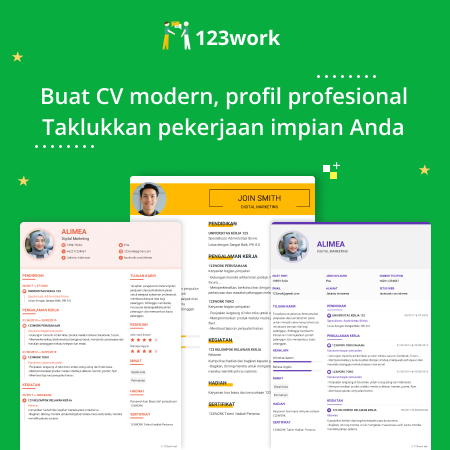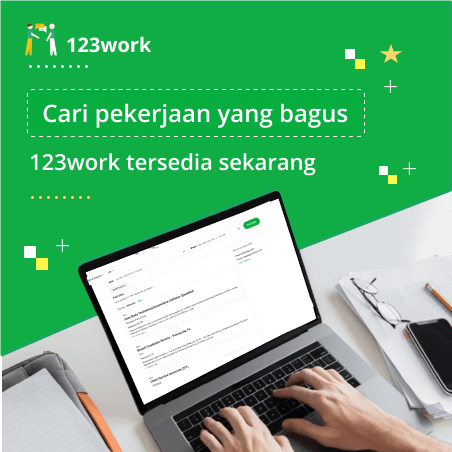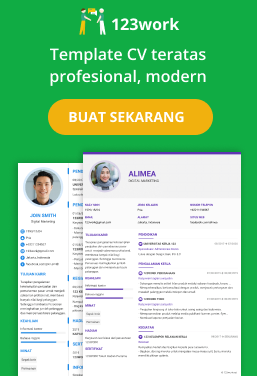Result of ServiceBy working closely with the UN RCO and CCA Task Team, the Lead Editor will produce a consolidated, high quality Common Country Analysis CCA. The following principles will need to be applied: builds on existing resources and reports, directly integrate UN system wide studies/research, evidence based and data driven, Leave No One Behind (LNOB), Human Rights Based Approach and Gender Equality and Women Empowerment, Systems Thinking, Coherence, Meaningful Participation, Foresight, and making linkage with international commitments and standards. The outline of the CCA for Indonesia 1. Executive Summary 2. Introduction 3. Chapter 2 - Progress Towards 2030 Agenda and SDGs in Indonesia - Overview of SDGs Progress in Indonesia - National vision and development plans - Data landscape: i.e. availability, accessibility, quality 4. Chapter 3 - Leaving No One Behind (LNOB) 5. Chapter 4 - Development Trends and Challenges (including the six SDG Transitions): - Social Development - Economic Transformation - Environment and climate change - Digital transformation - Political and Governance - Humanitarian-Development-Peace Nexus - Financial landscape - Cross border and Regional Analysis 6. Chapter 5 - Partnership Analysis 7. Chapter 6 - Foresight: Anticipated Risks and Opportunities 8. Conclusion 9. Annexes Work LocationHome Based Expected duration5 Months (During April - August 2024) Duties and ResponsibilitiesThe United Nations (UN) in Indonesia is recruiting an International Individual Contractor to be the Common Country Analysis (CCA) Lead Editor. A Common Country Analysis (CCA) is an independent, integrated, forward-looking and evidence-based joint analysis by the United Nations Country Team of the context for sustainable development in a country, with a focus on the most vulnerable and marginalized groups. The CCA will also identify the root causes and drivers of these issues, as well as their interlinkages and synergies. Moreover, the CCA will assess the national capacities and gaps to address these issues, as well as the alignment of national policies and plans with the 2030 Agenda and other international commitments. The CCA is a signature function of a United Nations country team that generates tailored analytical products at the country level. It is part of a strategic pivot for the United Nations towards becoming the top source for independent, trusted analysis and policy advisory support on sustainable development. CCA is not just a study, it is the starting point for developing the subsequent UN Sustainable Development Cooperation Framework (UNSDCF) 2026-2030 for Indonesia, which defines the collective response of the UN system to support the national development priorities and needs in Indonesia, as well as the basis for UN Agency Country Programme or Country Strategy Documents (CPDs). It is guided by the Companion Package adopted by UNSDG and its annexes, emphasizing independent, high-quality, participatory analysis. The CCA should be informed by relevant data, evidence and perspectives from a wide range of sources and stakeholders, including the government, civil society, academia, private sector, development partners and other UN entities. Moreover, the CCA builds on the UN's normative values and principles, incorporating a human rights-based approach, gender equality, leaving no one behind, environmental sustainability, resilience, innovation, and partnerships. Drawing from lessons learned in the current UN Sustainable Development Cooperation Framework (UNSDCF) 2021-2025 cycle, the CCA aims to guide the UN in strategically supporting Indonesia's national development goals and aspirations. Overall, the CCA is a critical tool for fostering coherence, impact, and efficiency in the UN's work in Indonesia. Under the overall direction from the Head of UN Resident Coordinator Office (RCO), and direct supervision of the RCO Economist, the CCA Lead Editor will perform the following duties and responsibilities: - Lead the consolidated editing for a high-quality CCA for UN in Indonesia, applying systems thinking and coherence principle, and that the document meets the requirements of the Companion Package. UNCT will provide draft texts of the Chapter 2-6 of the CCA. - Draft the executive summary, introduction, and conclusion of the CCA. - Ensure no duplication and inconsistencies of all sections in the CCA. - Integrate relevant comments and feedback (Create issue log to record any changes and inputs to the document) - During consultations and validation workshop within UN System and with stakeholders, deliver the presentation and/or facilitate discussions. The validation workshop will be conducted in person in Jakarta. - Include all relevant annexes into the document. The approach for conducting the CCA in Indonesia is based on the following principles: • Builds on existing resources and reports It will leverage diverse existing resources and reports, including UN Agencies reports and studies that are available in DOMES (UN Indonesia Document Repository). The CCA will also use reports and produced by other institutions, including the Voluntary National Review (VNR), Voluntary Local Reviews (VLRs), the National Medium-Term Development Plan (RPJMN), the National Socio-Economic Survey (SUSENAS), the Human Development Report (HDR), the Multidimensional Poverty Index (MPI), the Gender Inequality Index (GII), the Environmental Performance Index (EPI). • Directly integrate UN system wide studies/research CCA will integrate existing UN-system wide studies and research. These include the LNOB study, INFF, One Energy, etc. • Evidence-based and data driven The analysis will rely on solid, verifiable evidence and data. When data is not available, the CCA will identify and address the data gaps. • Leave No One Behind (LNOB), Human Rights Based Approach and Gender Equality and Women’s Empowerment (GEWE) The CCA will emphasize the integration of these principles to comprehensively address development challenges and opportunities. This involves applying a human rights-based approach and incorporating a gender perspective identify the root causes, drivers and interlinkages of development challenges and opportunities, as well as the gaps and inequalities among different groups of people and regions. The CCA will be informed by LNOB Study conducted in 2022 and in 2023. Additionally, the analysis will be guided by the new CCA Checklist for HRBA, LNOB, GEWE, ensuring that these crucial aspects are mainstreamed and utilized throughout the assessment process. In adopting a human rights-based approach to development, the CCA will align itself with international human rights standards, directing operation effort towards promoting and protecting human rights. Furthermore, the CCA will place a strong emphasis on Gender Equality and Empowerment (GEWE). It will bring attention to the essential aspects of gender equality and non-discrimination, considering norms, structures, relations and agency. • Systems Thinking In the context of the CCA, systems-thinking considers the interlinkages between key elements, such as Sustainable Development Goal (SDG) progress, root causes of development challenges, risks, and capacities, across multiple dimensions of sustainable development. By adopting a systems-thinking perspective, the CCA moves beyond isolated assessments and instead examines the intricate relationships and feedback loops that exist within the economic, social, political, and environmental spheres. • Coherence The CCA will ensure coherence and complementarity with other analytical processes and frameworks within UN System. This includes UN Agencies own situational analysis in the country. • Meaningful participation To ensure meaningful participation, the UN will engage a broad range of stakeholders, including national and subnational authorities, civil society organizations, academia, private sector, development partners and other UN entities, through consultations, focus group discussions, workshops and other participatory methods. The UN will make participation accessible to marginalized groups by accommodating disabilities, addressing language barriers and considering remote areas. The CCA will offer diverse input channels for stakeholders. Validation of the findings with stakeholders will also be made to ensure their perspective are accurately considered. • Foresight The CCA, where possible and relevant, will apply foresight techniques including horizon scanning to identify emerging issues and early signal of change, suggest signals and trends that are not yet on the radar. Scenario planning can be applied at the risk analysis to develop alternative scenarios for Indonesia’s development trajectory towards 2030, identify and analyze key uncertainties (e.g. economic growth, political stability, climate impacts). Indonesia is a pilot country (12 globally) in 2024 to be trained in applying the Foresight methodology for both the CCA and the upcoming UNSDCF. • Linkage with international commitments and standards The Common Country Analysis (CCA) for Indonesia will examine the country’s promises in international human rights treaties and agreements. This includes a review of recommendations from human rights assessments like the Universal Periodical Review (UPR) and Treaty Bodies. Additionally, the CCA will look at regional agreements and strategies that Indonesia has pledged to follow. A critical part of the analysis involves evaluating how well national laws, policies, and budgets align with these international commitments. The goal is to identify any shortcomings in carrying out these commitments, pinpoint areas where there might be limitations or lack of capacity and highlight opportunities where fulfilling these commitments could speed up progress. Examples of commitments to cover: Human rights treaties (CEDAW, CRC etc.), Paris Agreement on Climate Change, Sendai Framework on Disaster Risk Reduction, Biodiversity and wildlife trade commitments. Output/Work Assignments • Deliverable 1 workplan (level of effort: 2 working days) Payment: 8% Deadline: 5 April 2024 • Deliverable 2 Draft 1 of the edited CCA, including the issue log of inputs and suggested revisions (level of effort: 10 working days) Payment: 40% Deadline: 30 May 2024 • Deliverable 4 Presentation and Facilitation for Consultations and Validation of the CCA (level of effort: 5 working days) Payment: 20% Deadline: 1 July 2024 • Deliverable 3 Final Document of the CCA, including the issue log of inputs and suggested revisions (level of effort: 8 working days) Payment: 32% Deadline: 31 August 2024 The contract will be a lump sum agreement with term of payments based to deliverables or report submissions. Travel expenses will be encompassed within the overall contract amount. Qualifications/special skillsMaster’s Degree in Development Studies, Public Policy, or other related areas • Minimum 10 years of progressive experience in conducting interdisciplinary research that includes social, environmental, economics, governance • Excellent understanding of crosscutting issues: gender, youth, disability, human rights. • Proven understanding and experience in applying System Thinking. Understanding and experience with the application of the Strategic Foresight approach is an asset. • Proven experience in leading or managing complex research or activity • Having published edited books or articles is an asset. Samples of written work may be requested as part of the selection process. • Previous experience with UN system or development partners is considered an asset. • Experience in using the UNSDCF guidelines is an asset. • Experience in Middle-Income Country context is an asset. Languages• Excellent Written and spoken language skills in English, proven ability to produce high quality written outputs in English. Additional InformationTRAVEL INFORMATION: The CCA Lead Editor will be required to travel to Jakarta, Indonesia for 10 working days for consultation meetings and facilitating the validation workshop with the UN team and stakeholders. The relevant travel costs will need to be included into the total contract value. No FeeTHE UNITED NATIONS DOES NOT CHARGE A FEE AT ANY STAGE OF THE RECRUITMENT PROCESS (APPLICATION, INTERVIEW MEETING, PROCESSING, OR TRAINING). THE UNITED NATIONS DOES NOT CONCERN ITSELF WITH INFORMATION ON APPLICANTS’ BANK ACCOUNTS.


